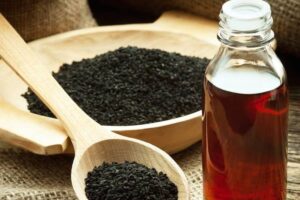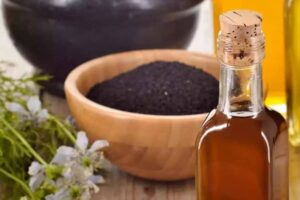In recent years, there has been a noticeable shift in consumer preferences towards healthier and more sustainable food choices. One such item that has gained widespread attention is organic whole wheat flour. This article aims to explore the various aspects of organic whole wheat flour, including its benefits, production methods, and environmental impact.
What is Organic Whole Wheat Flour?
A. Definition and characteristics of whole wheat flour
B. Differentiating organic whole wheat flour from conventional options
C. Organic certification and standards for whole wheat flour production
Organic whole wheat flour is derived from grinding the entire wheat kernel, including the bran, germ, and endosperm. It differs from conventional whole wheat flour in that it is produced using organic farming practices, which eschew synthetic pesticides, herbicides, and genetically modified organisms. To be labeled as organic, whole wheat flour must meet strict certification standards set by regulatory bodies.
III. Benefits of Organic Whole Wheat Flour
A. Nutritional advantages over refined flours
B. Higher fiber content and its health benefits
C. Increased levels of vitamins, minerals, and antioxidants
D. Enhanced flavor and texture in baked goods
Organic whole wheat flour offers several nutritional benefits compared to refined flours. It contains higher levels of fiber, which aids in digestion, helps regulate blood sugar levels, and contributes to a feeling of fullness. Additionally, it retains more vitamins, minerals, and antioxidants, providing a richer and more complex flavor profile when used in baking.
Product Recommendations
Product 1:365 by Whole Foods Market, Organic 100% Whole Wheat Flour, 80 Ounce
- 30G Whole Grains Per Serving
- High Up In Mountain Valleys In The Usa, Family-Owned Farms Grow The Wheat For This Whole Wheat Flour. Using A Grain Known As “Dark Northern Spring,” We Expertly Mill It For Consistency, Bringing A Mild Nutty Flavor To Hearty Breads, Pizza Doughs, Rolls, Muffins And Pancakes. Pantry Mainstay, Right Here.
- Trust & Quality We Are Proud To Offer This Product To You Because It Meets Our Rigorous Quality Standards, Which Prohibit Over 100 Ingredients For Both Food And Supplements.
- 365 by Whole Foods Market products give you that dance-down-the-aisles feeling, virtual aisles too! Our huge range of choices with premium ingredients at prices you can get down with makes grocery shopping so much more than tossing the basics in your cart.
- An Amazon brand
Our unbleached white whole wheat flour is milled from hard white spring wheat – a lighter-colored grain than traditional red wheat – which yields milder-tasting baked goods. This flour will gives you the nutrition and fiber without compromising flavor
Product 3:Bob’s Red Mill, Organic Flour, Whole Wheat, 5 lb
- Bob’s Red Mill is the nation’s leader in stone milling and offers the widest diversity of whole grains found anywhere.
- USDA guidelines recommend eating at least 3 servings of whole grains every day.
- Organic
Production and Processing of Organic Whole Wheat Flour
A. Organic farming practices for wheat cultivation
B. Pest and weed management in organic wheat production
C. Harvesting, milling, and processing techniques for organic whole wheat flour
Organic whole wheat flour is cultivated using organic farming practices, which prioritize soil health, biodiversity, and ecological balance. This includes crop rotation, natural pest control methods, and the avoidance of synthetic chemicals. During processing, organic whole wheat flour is minimally refined to preserve its nutritional integrity.
Environmental Impact of Organic Whole Wheat Flour
A. Sustainability and soil conservation in organic farming
B. Reduced pesticide and chemical fertilizer use
C. Preservation of biodiversity and ecosystem health
The production of organic whole wheat flour has a positive impact on the environment. Organic farming methods promote soil conservation, reduce chemical runoff, and support biodiversity. By avoiding the use of synthetic pesticides and fertilizers, organic farming contributes to healthier ecosystems and waterways.
Buying and Using Organic Whole Wheat Flour
A. Availability and where to purchase organic whole wheat flour
B. Storage tips to maintain freshness and quality
C. Incorporating organic whole wheat flour into recipes and cooking
Organic whole wheat flour is readily available at natural food stores, specialty grocers, and online retailers. To maintain its freshness and quality, it is recommended to store organic whole wheat flour in a cool, dry place and use it within a reasonable timeframe. Organic whole wheat flour can be used in a variety of recipes, including bread, muffins, pancakes, and other baked goods, providing a healthier alternative to refined flours.
Conclusion
A. Recap of the benefits of organic whole wheat flour
B. Final thoughts on the role of organic products in a healthy and sustainable diet
In conclusion, organic whole wheat flour offers a range of nutritional, environmental, and culinary benefits. Its production fosters sustainable agricultural practices, supports environmental conservation, and provides consumers with a healthier and more flavorful option for their baking needs. Incorporating organic whole wheat flour into a balanced diet not only promotes personal well-being but also contributes to the broader goal of building a more sustainable food system.






